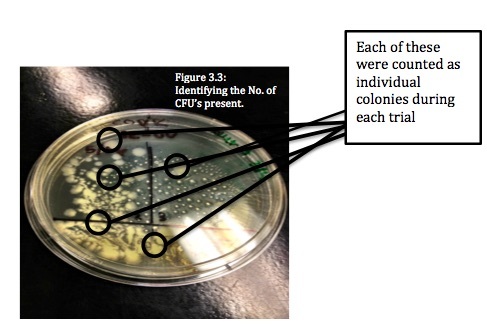The Effects of Ultraviolet Light on Escherichia coli
(1) West Windsor-Plainsboro High School South, New Jersey
https://doi.org/10.59720/15-025
Ultraviolet (UV) radiation is known to inhibit cell growth and induce gene damage (1). For these reasons, UV radiation is used as a method to sterilize surgical instruments because it kills the bacteria present and disrupts bacterial reproduction (2). Infections acquired from hospitals, particularly post-surgical infections, have become increasingly common, and require the use of UV disinfection systems. In this study, we investigated the effect of UV light on Escherichia coli (E. coli). Specifically, this study explored the effects of the small UV lights currently used in school laboratories, in an attempt to extend UV radiation methods to common households. We used the number of colony-forming units (CFUs) to determine whether or not the UV light increases or decreases cell growth. E. coli were exposed to UV light with a wavelength of 254 nm. The number of CFUs under control and UV-exposed conditions were measured after 24 and 48 hours. We observed that UV light exposure at 254 nm from a small school laboratory light inhibits bacterial growth.
This article has been tagged with: